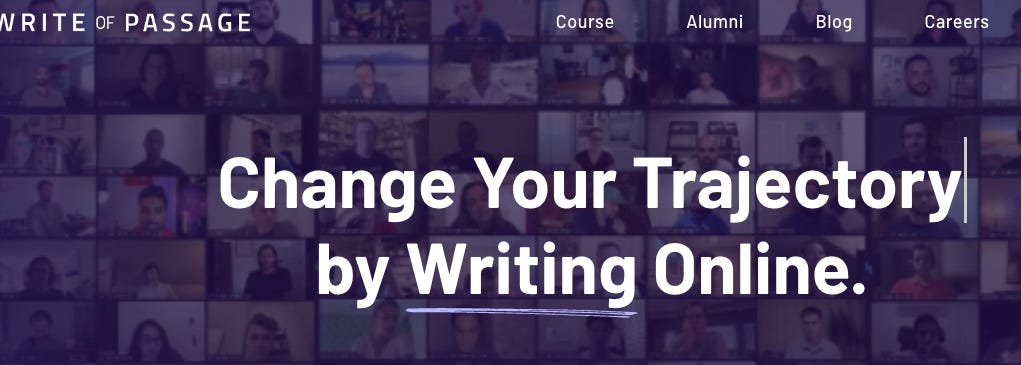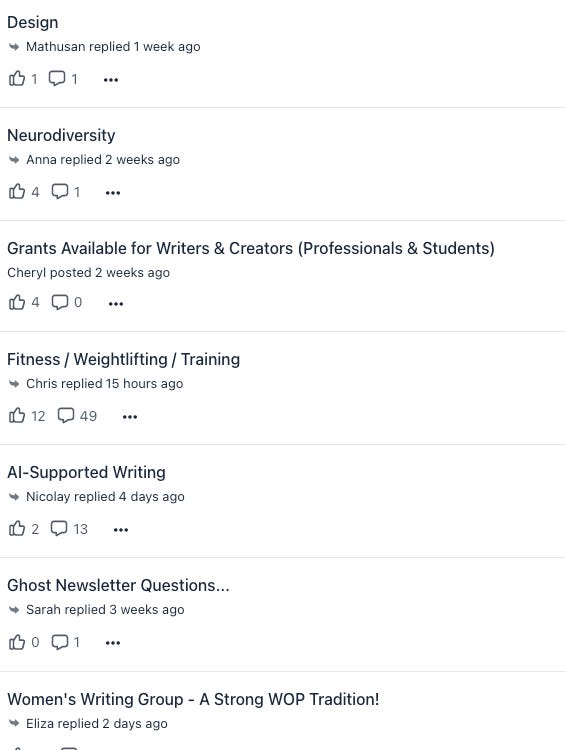Community
Build a Playground, Not an Assembly Hall
I’ve worked most of this year as Head of Community for a couple NFT companies. I’ve interacted with thousands of people and cultivated online spaces for members to meet. But I had a feeling something was missing.
I turned to the book The Art of Community for ideas, and was shocked to realize I didn’t even know the definition of what I was trying to achieve. Author Charles Vogl states:
Community is when two or more people share a mutual concern for each other’s welfare
According to that, most of the “communities” I contribute to don’t qualify. The concern for others’ welfare is weak.
But one group was an exception. This fall, I took Write of Passage (WoP), a 5-week cohort based program on writing online. The community was energetic and addictive. I had to dissect what was going on, and how I could use it in my world. I uncovered two things they do that promote ‘mutual concern’ among members: establish group identity and build a playground. Both are also related to principles in The Art of Community.
Establish group identity with understood boundaries
Check out the WoP website and you’re bashed on the head with the purpose.
Writing online. That’s it.
They repeat this over and over again throughout the course materials. If you’re committed to writing better online, you're likely a good fit. If not, you aren’t.
When we joined the course, we were added to private classes and discussion channels. There was no mistaking who was in, why we were here, and how to connect with each other.
This culminated in an enormous benefit: a safe space for members to be vulnerable and effortful. I cannot overstate how important this was. The internet can be a scary place to open up. Fortifying the boundary around this space allowed us to form meaningful connections. We developed insider understandings about what it’s like to go through this course together. We shared struggles, offered support, and celebrated wins. We got to know each other.
Going forward in my communuties, I’ll do a better job asking: Why is everyone here? What do we stand for and against? What can we achieve together? Then create a protected space for members to connect.
Build a playground, not an assembly hall
In WoP, we were encouraged to organize ourselves for our own reasons. We used Circle to start discussion threads and DM each other to continue conversations outside of the planned programming. Discussions emerged about writing newsletters, new opportunities, and niche topics.
There were also location-based groups, and I’ve met many of the students in Austin. I believe the IRL meetups will determine the vibrancy of the community for the alumni. As Vogl quotes in his book that “the most powerful thing an online community can do is create offline friendships.”
Many online groups I’m in are less like a playground, and more like a broadcast from stage. Everyone facing one direction to the leader, and rarely talking to each other. As a leader, I could do a better job creating paths for members to drive their own initiatives within the overarching purpose. This could include community proposals and voting, regional IRL meetups, or a grant program funding community projects. Members can then mold the community in a way they find valuable.
Return on Community
The business benefits to WoP were eye-popping. There were over 100 returning alumni (read: repeat customers). Of the first-timers I spoke to, most had signed up due to referrals from alumni. Myself included, as I joined after listening to an alumni speak about it on the Acquired podcast (read: free marketing). And lastly, most of their employees were previous students. Their community became their best recruiting asset.
After all this, I’m glad to finally know what my job is.



“This culminated in an enormous benefit: a safe space for members to be vulnerable and effortful. I cannot overstate how important this was. The internet can be a scary place to open up. Fortifying the boundary around this space allowed us to form meaningful connections...We shared struggles, offered support, and celebrated wins.”
Great assessment of the WOP community and thank you for being such a supportive member within that environment!